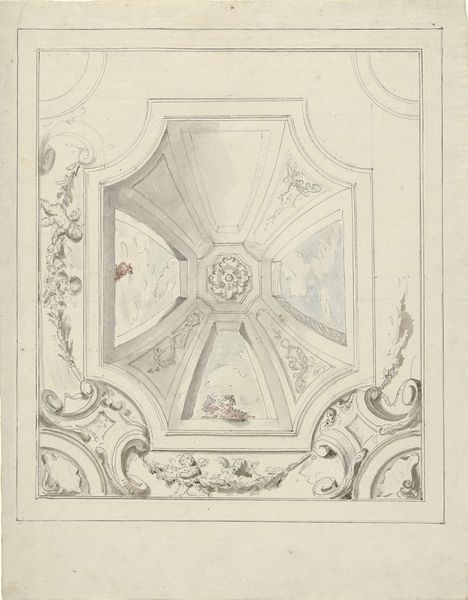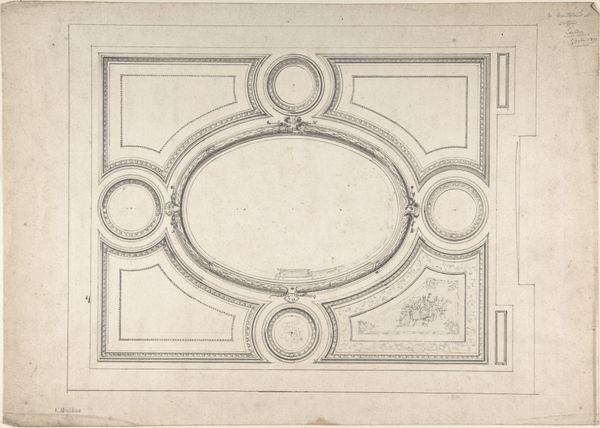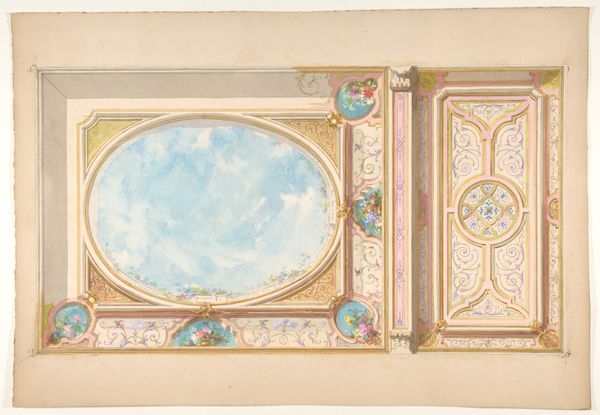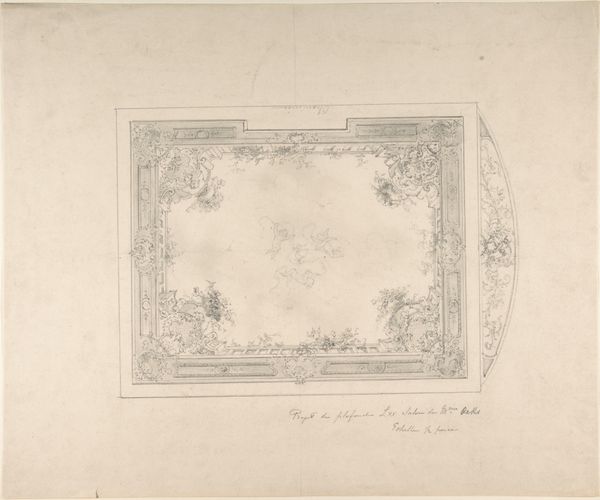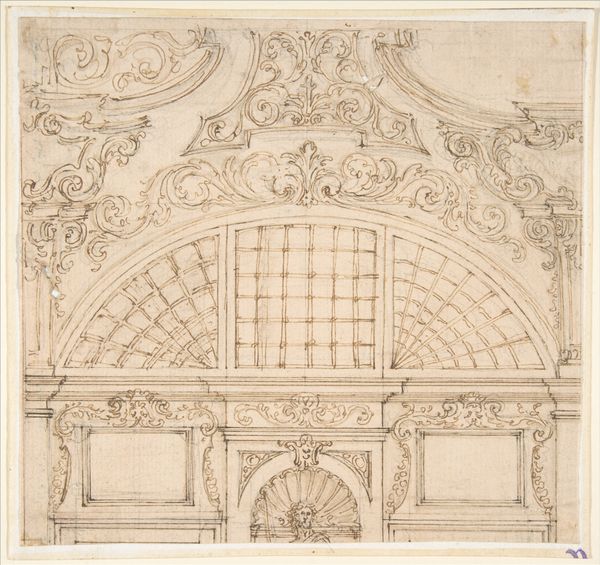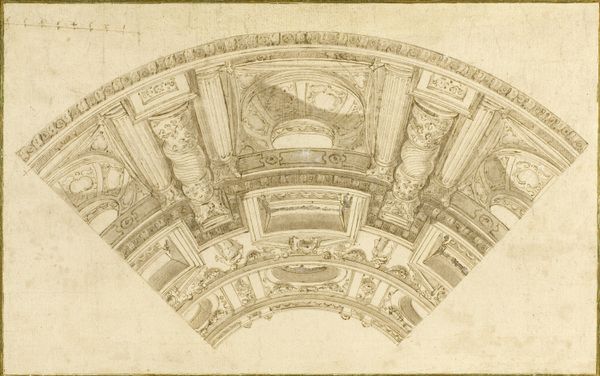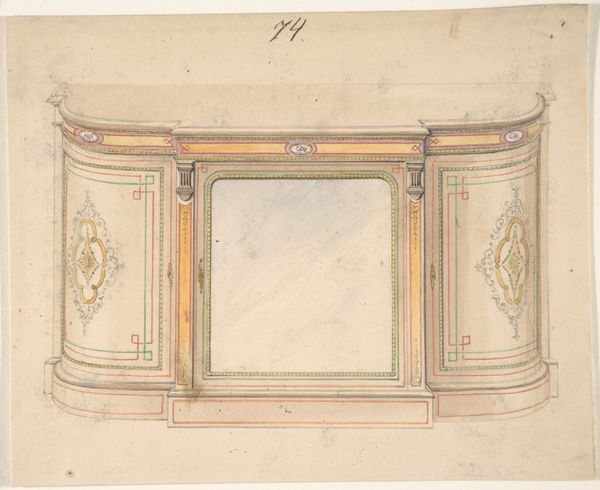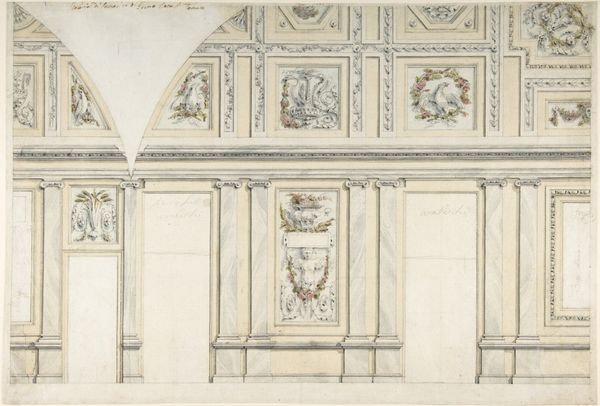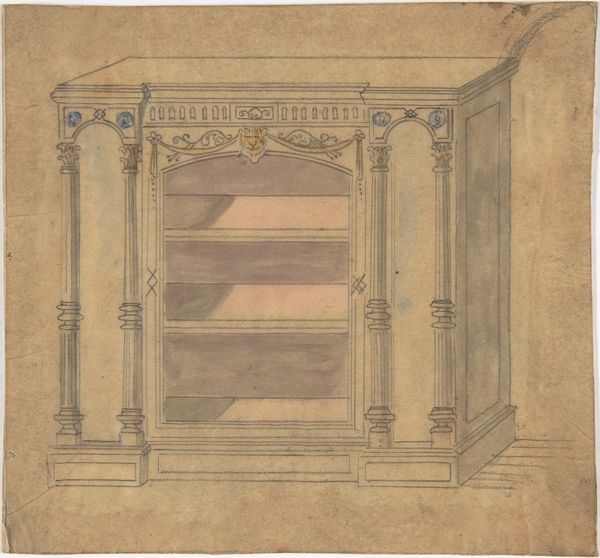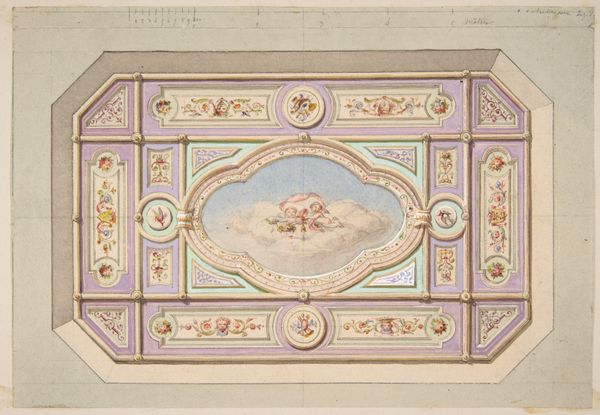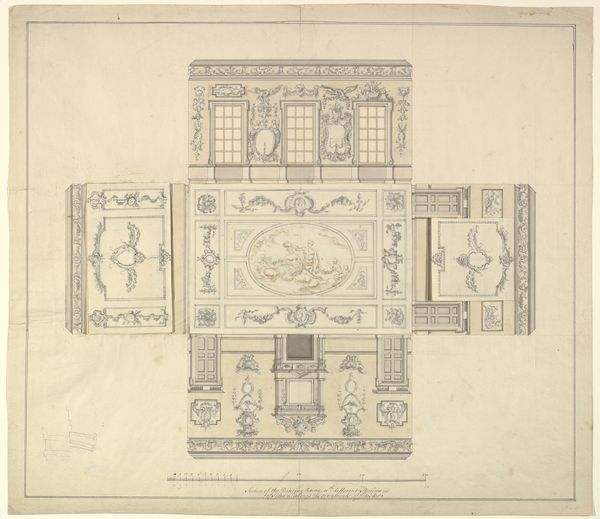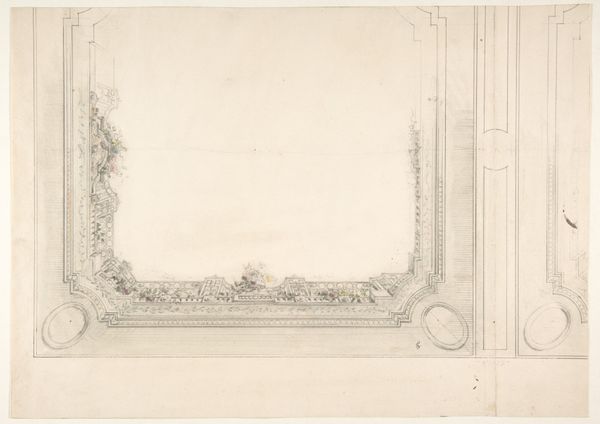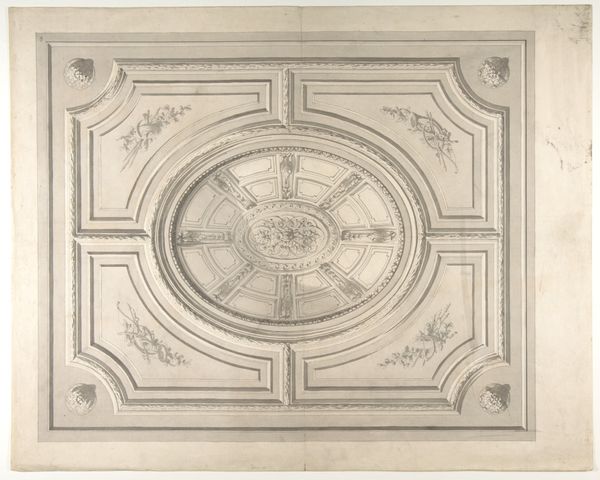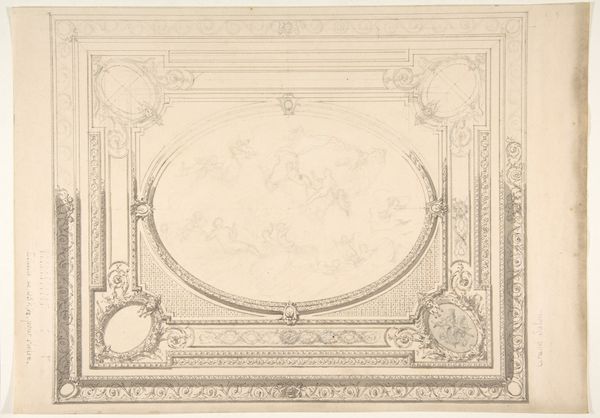
Design for Trompe L'Oeil Ceiling for Dining Room, Hôtel de Trévise 1850 - 1910
0:00
0:00
Dimensions: 10 7/8 x 8 3/8 in. (27.6 x 21.3 cm)
Copyright: Public Domain
Jules-Edmond-Charles Lachaise made this design for a trompe l'oeil ceiling for a dining room in the Hôtel de Trévise with pen and brown ink, with gray wash, watercolor, and graphite. This work invites us to consider the illusion and reality within domestic spaces, particularly how wealthy homes in Paris used artifice to create impressions of grandeur and openness. Such designs were not merely decorative; they reflected aspirations of class, taste, and power. The meticulous detail suggests a desire to transport diners to an imagined, perhaps idealized, space above. The architectural elements and subtle color palette speak to the artistic conventions of the time. Consider, too, the emotional intent behind such a design. Did it aim to inspire awe, provide comfort, or perhaps even to subtly assert the homeowner’s status? Lachaise's design offers a window into the cultural values and social dynamics of early 20th century Parisian society. It bridges the intimate space of the dining room with the expansive potential of artistic illusion.
Comments
No comments
Be the first to comment and join the conversation on the ultimate creative platform.
